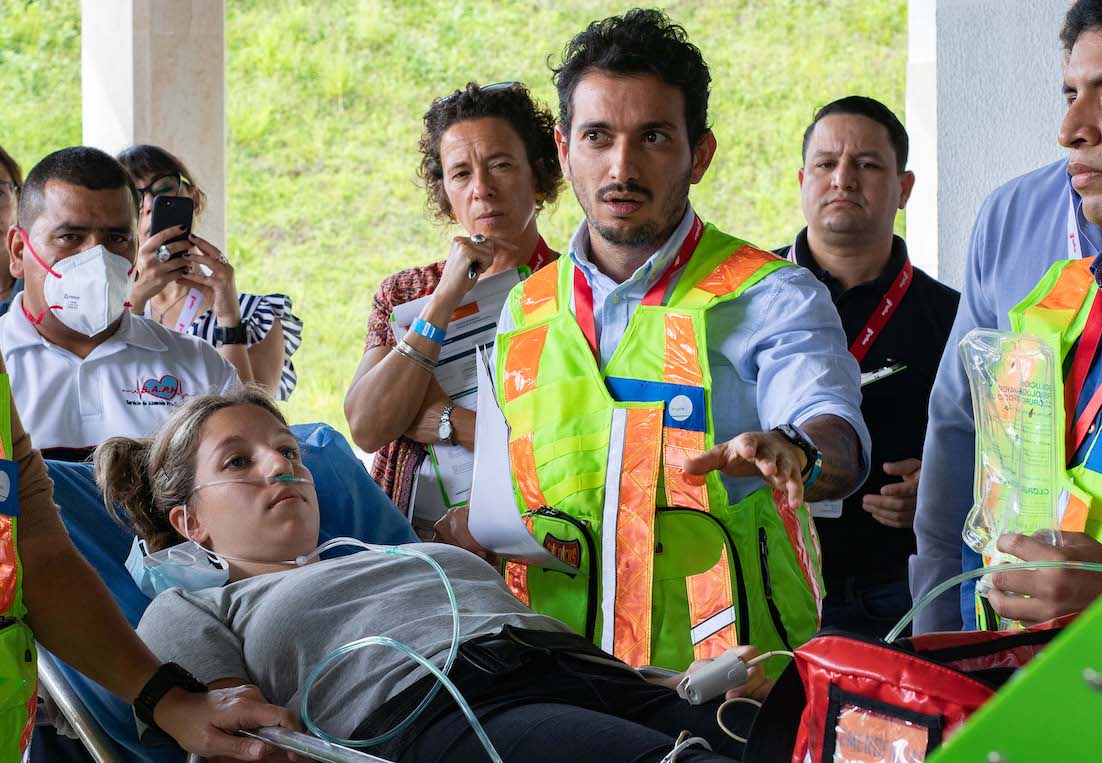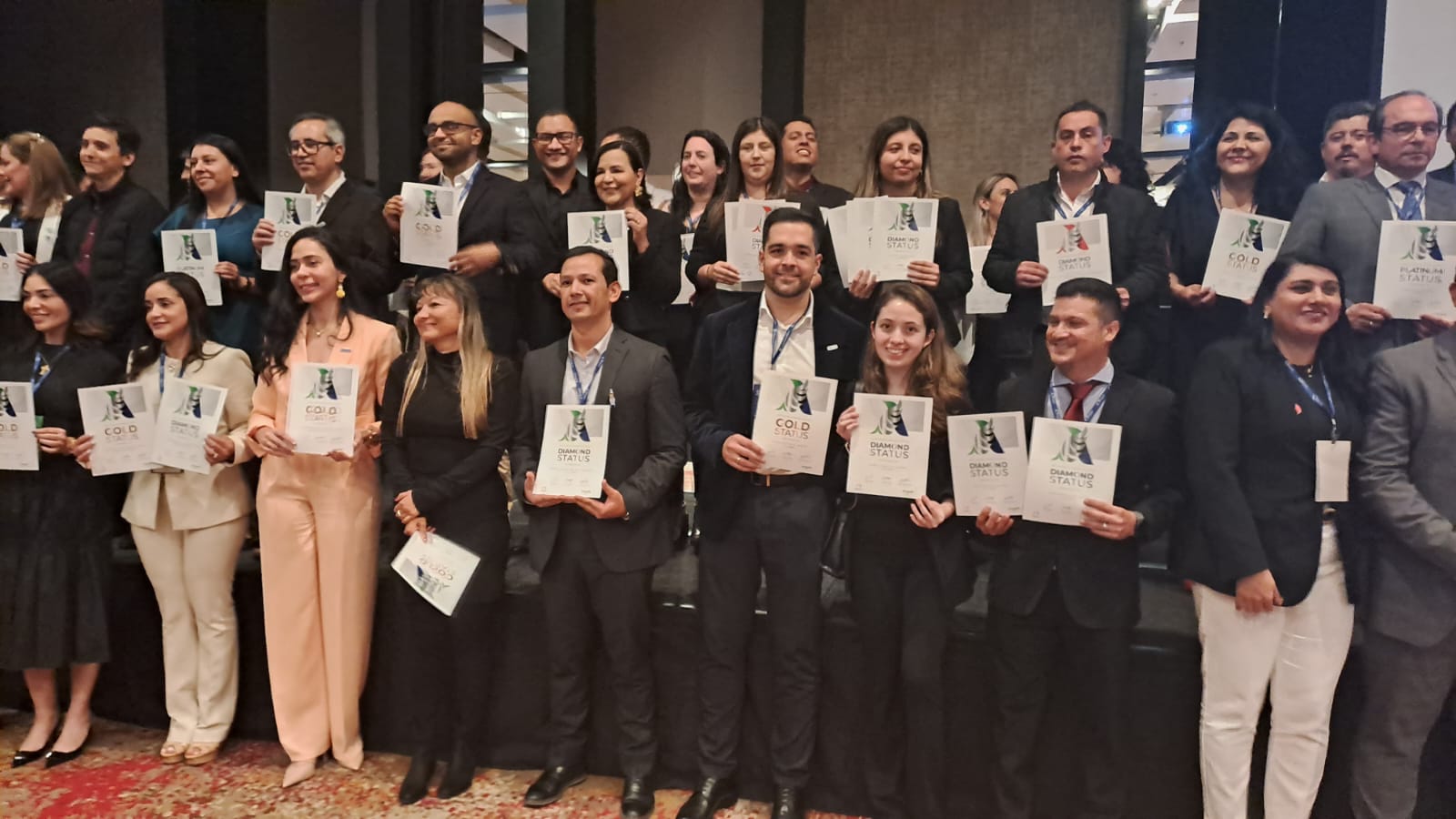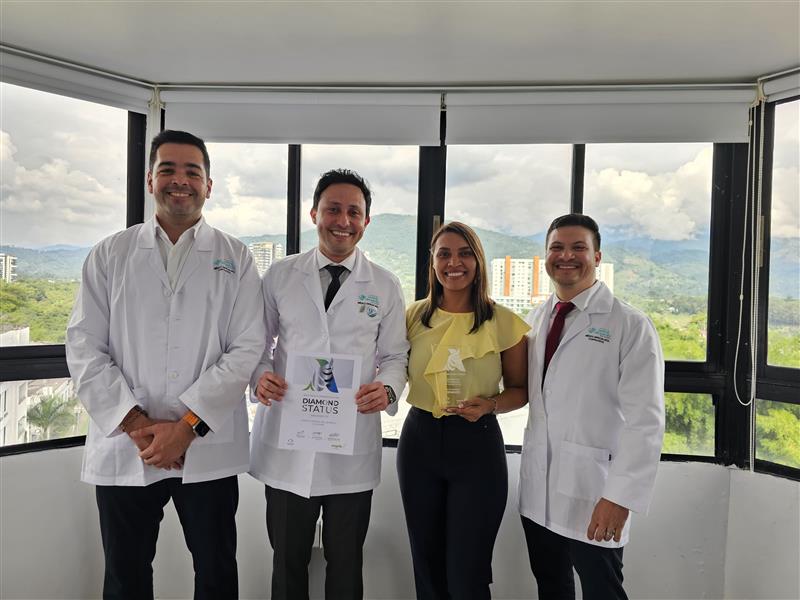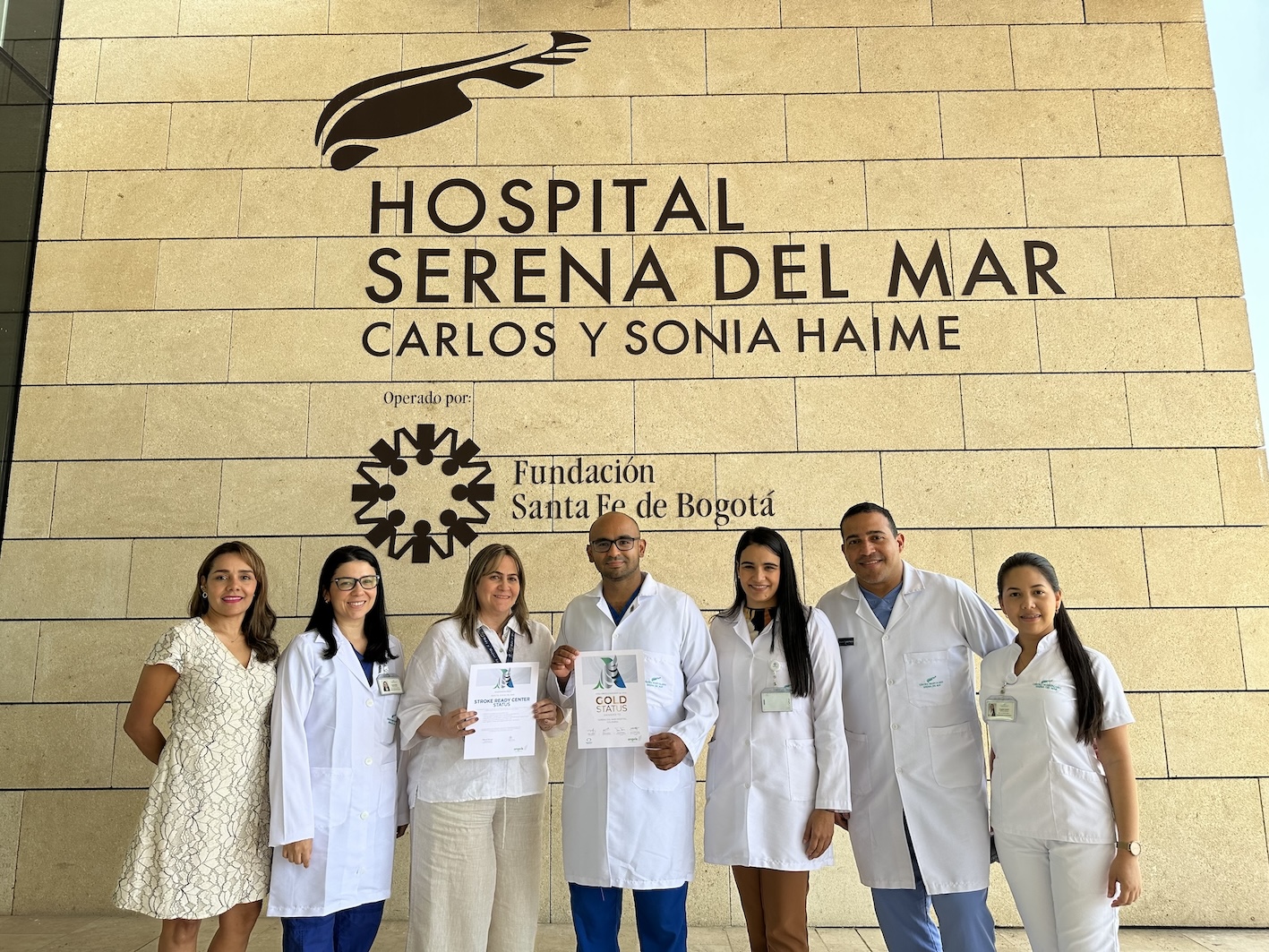
DR Claudio Jiménez a Bogotá-i Simón Bolívar Kórház neurológus és neurofiziológusa, valamint a város északi alhálózatának stroke központ igazgatója. Már több mint négy év telt el azóta, hogy először lépett be a közkórházba, amely egy forgalmas főútvonal és Bogotá egyik legnagyobb favellája között található. Az 1982-ben elkészült és a Bogotá központi terét meghatározó felszabadító hős előtt tisztelegve a Simón Bolívar Kórház több mint év alatt felújítási és terjeszkedési folyamaton esett át, miközben neurológia részlegén csendes forradalom zajlott.
Ennek a forradalomnak a vezetőjét a szenvedély és a „lelkébe rejtett filozófiai érdekesség és fizikai titok” vonzotta – ezért Dr. Jiménez írt egy bejegyzést az Instagram oldalon @neuro_filos, ahol közel 50 000 követőjével osztja meg a neurológia fejlesztések eredményeit.
„Amikor megmentjük az agyszövetet, megmentjük a közösségi szöveteket” – jelentette be ugyanez az oldal –, és egy pillantást vetünk valami másra, ami Dr. Jiménezt irányítja, nevezetesen arra a kötelességre, hogy olyan erőforrást építsünk, amely mindenkihez tartozik és mindenkinek az érdekeit szolgálja.
2019 augusztusában csatlakozott a Simón Bolívar Kórházhoz, ahol számos beavatkozással kezdtek, és egy csapatot építettek a stroke kezelésére. „Az életem ezen pillanatától kezdve radikálisan megváltozott” – mondta a Kolumbiai Orvosi Szövetségnek egy 2021-es interjúban, amikor is a kórház stroke gondozás programja már megszerezte a három WSO Angels Diamond Awards díjából a másodikat.
Ami elkezdődött kíváncsinak lenni azzal kapcsolatban, hogy az agy hogyan kelti fel a valóságról alkotott képünket, és a szenvedés enyhítésére irányuló vágya egy gondoskodó társadalomban a egészségügy reformjának víziójává vált. Dr. Jiménez álma, hogy mindenki, aki otthont teremt Bogotának, ha kórházba megy, minőségi és emberi ellátást kapjon.
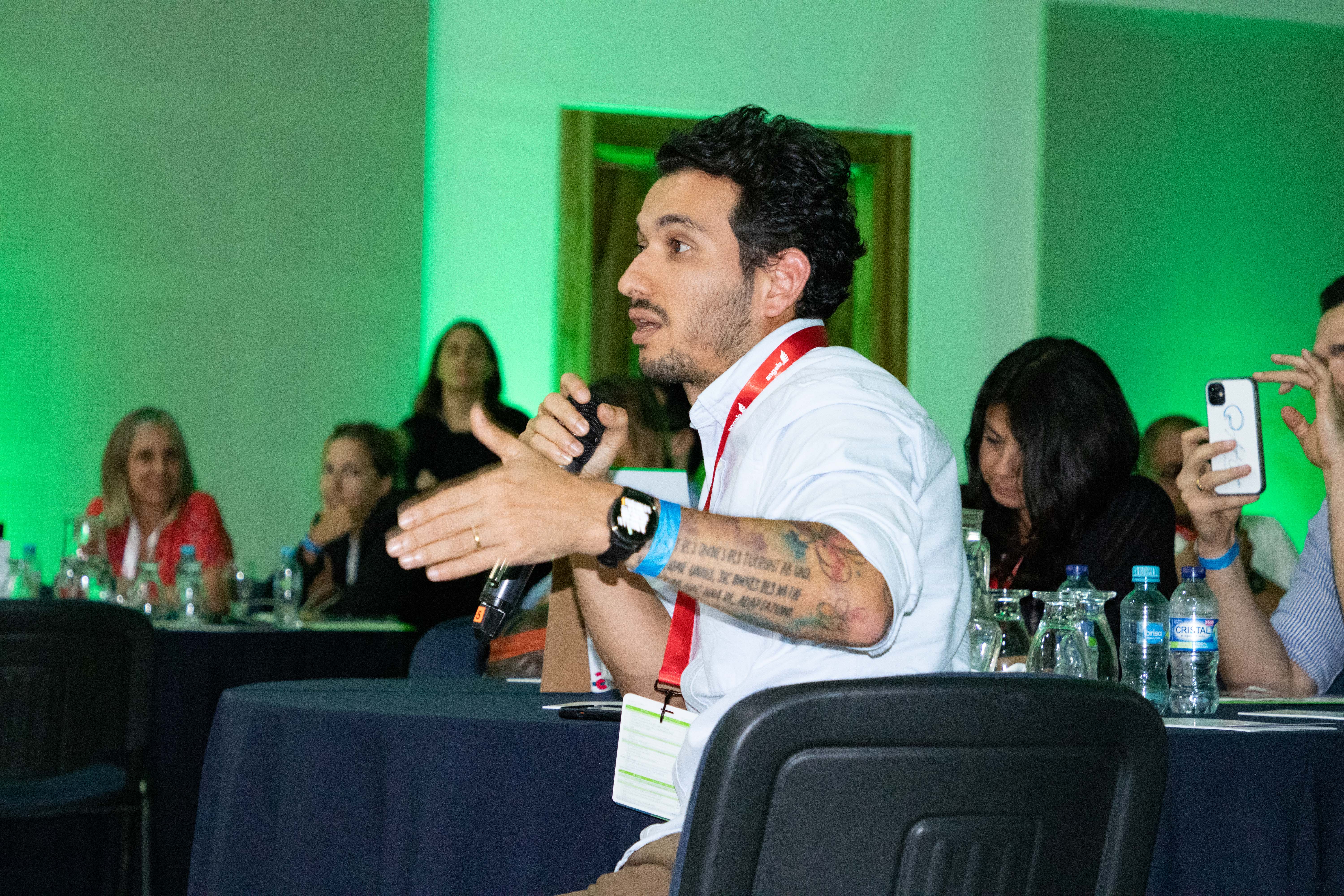
Nagy problémák és reményteljes jövő
„Amikor elkezdtem a Simón Bolívar Kórházban dolgozni – meséli Jiménez –, rájöttem, hogy számos apró probléma van, de egy súlyos és sürgős, ami stroke protokollt hozott létre és standardizálta az ellátást. Ez vezetett az ország első stroke-hálózatának és a kolumbiai nyilvános hálózat első stroke központ létrehozásához, amelyet a WSO tanúsított.
„Most évente 450-500 ischaemiás stroke-ban szenvedő betegen dolgozunk, és több mint 110 trombolízissel kezelünk, de a trombektómiához való hozzáférésben továbbra is jelentős hiány van. Egészségügyi titkárunkkal együttműködve egy olyan területi stroke-hálózatot hozunk létre, amely a mechanikus trombektómiához való hozzáférés akadályait kívánja megszüntetni.
„Fontolóra kell venni, hogy csak Bogotá nyilvános hálózatában évente több mint 2000 stroke eset fordul elő, és jelenleg a miénk az egyetlen közintézmény, amely ezt az eljárást kínálja.
„De bár a jelenlegi kilátások még mindig sötétek, nagyon reményteli jövőt látok. A legfontosabb előrelépés az, hogy a lakosság egyre inkább tudatában van a stroke tüneteinek, és megtanulják időben felkeresni a sürgősségi osztályokat.
„Most a stroke előtt szeretnénk kezelni a stroke-ot. Ez azt jelenti, hogy egy olyan programon dolgozunk, amely lehetővé teszi számunkra, hogy azonosítsuk és értékeljük a kockázati tényezőkkel rendelkező betegeket, és kezeljük őket a stroke megelőzése érdekében.”
Simón Bolívarnál a stroke-program egy átfogó neurológia program keretében működik, amely magában foglal egy neurorehabilitációs központot, valamint egy Johns Hopkins által képzett Dr. Maria Isabel Reyes neuroimmunológiai csoportot, amely a HIV-et is beleértve, neuroinfekcióban szenvedő betegek számára jár. Vannak olyan klinikák is, ahol fejfájás és botulinum toxin alkalmazható a spaszticitás és a motoros rendellenességek kezelésére, és a stroke mellett sürgősségi neurológia ellátás is jár.
Dr. Jiménez a következőt mondja: „Egyre inkább megértjük, hogy a neurológiai betegségek közegészségügyi problémák. Még mindig hiányzik az erőforrások, a finanszírozás és a hozzáférés bizonyos alapvető diagnosztikai segédeszközökhöz, de azt kell mondanom, hogy fejlődünk.”
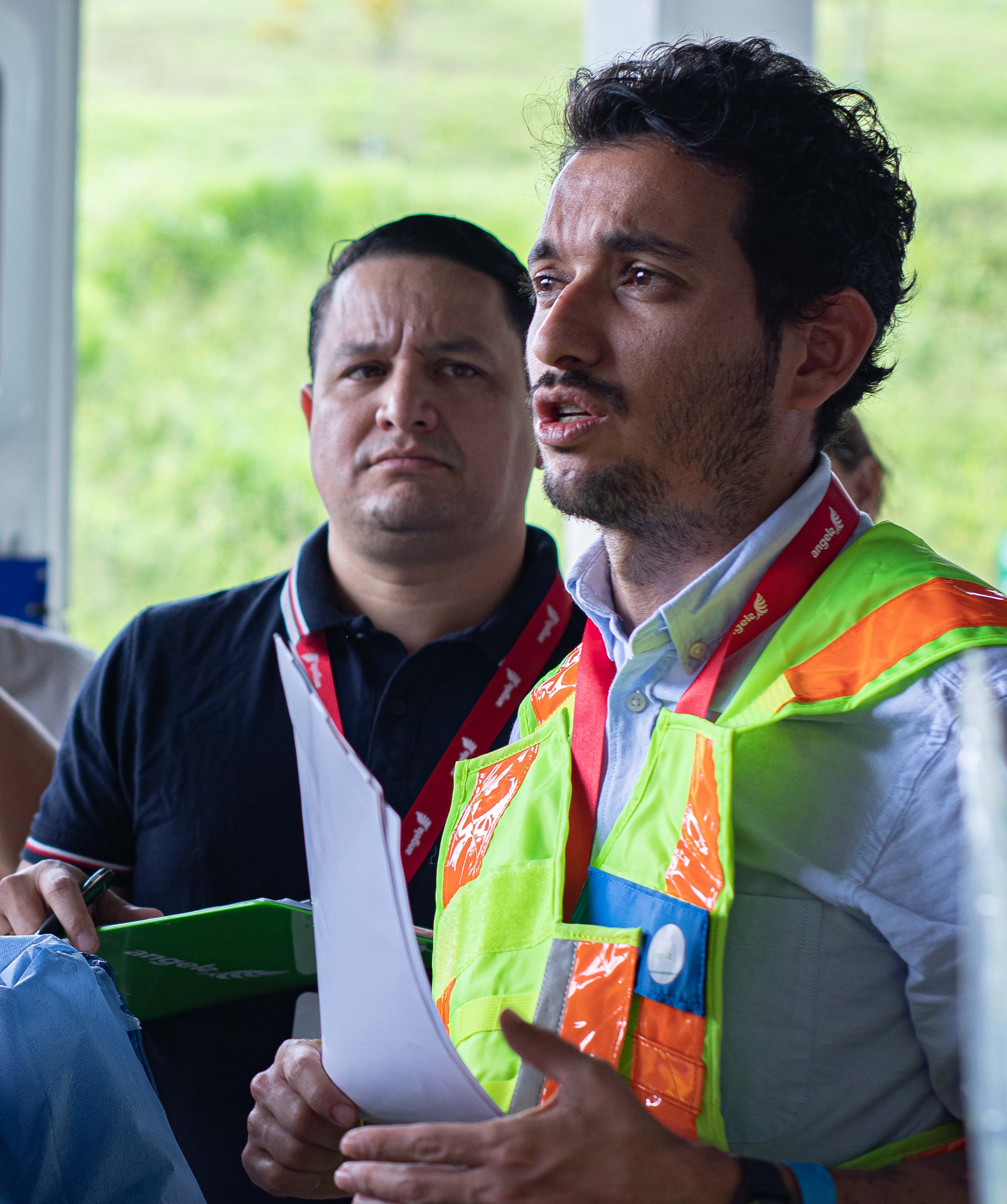
Poetikus igazságosság
Dr. Jiménez képzeletbeli kifejezési stílusa az egészségügy társadalmi igazságosságáért kampányoló személy, aki költői filozófusként is ismeri.
Azt mondja: „Megtanultam az orvoslást és az orvosi gyakorlatomat arra, hogy az életről, arról, hogy mi számít, és mi nem, a jelentés keresésére, ha van, hogy itt lehetek ezen a helyen ezen a hatalmas zöld és kék sziklán, és valami hasonlót tapasztalok.
„A Föld tele van élettel, a növényektől az állatvilág megszámlálhatatlan formáiig, és bár mindenkiben van kognitív és érzelmi élmény, az emberek az egyetlenek, akik megkérdőjelezik magunkat, azonosítják magunkat, és átalakítják a környezetet, hogy elkerüljék az alkalmazkodást.
„Tehát látod ezt a sok szenvedést, látsz valakit, aki elveszíti a nyelvét. Percekkel ezelőtt azt mondhatta, hogy „szeretlek”, percekkel ezelőtt pedig írhatott egy vonalat, amely az éteri gondolatokat betűkké változtatta. Az elmúlt időkben megvolt a szabadsága, hogy megölelje, futtassa, kifejezze az örömöt vagy a szomorúságot, majd hirtelen elveszik. Hirtelen nem tudsz ölelni, nem mondhatod, hogy „szeretlek”.
„A sztrók olyan, mint egy ragadozó, aki minden korban, minden korban megrógat minket, és mintha nyűgözné le az emberiségünket, vagy valami, ami ehhez elengedhetetlen.
„Évente több száz ember szenved az állat harapásától, és meg kell néznem, mi maradt még, majd mindent meg kell tennünk, hogy gondoskodjunk róluk, kijavítsuk a kárt, mintha láthatatlan állat harapását kezelnénk.
„Nos, a sztori összefoglalva, úgy döntöttem, hogy életem során a stroke kezelésére fordítom, hogy senki ne hagyja abba azt mondani, hogy „szeretlek”. Egy mondatban foglalom össze: „Amikor megmentjük az agyszövetet, megmentjük a közösségi szövetet”. De azt is mondhatjuk, hogy „Amikor megmentjük az agyszövetet, a világ azt mondja, hogy szeretlek”.
